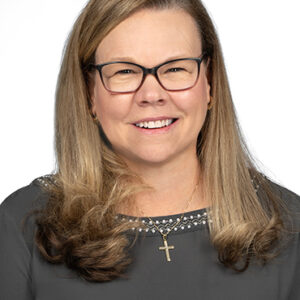The COVID-19 pandemic has created a crisis that is challenging the higher education industry like never before. Changing instruction delivery methods, keeping abreast with the ever-changing CARES Act guidance, drawing down and distributing Higher Education Emergency Relief Fund (HEERF) grants, and keeping students engaged amidst a pandemic are just a few of the challenges that institutions have learned to navigate in a few short months. Here are some key things to consider, as you work through these challenges:
HEERF – Documentation relative to the use of HEERF funding is critically important. Currently, it is uncertain whether any or all of those funds will be subject to a Single Audit of your federal funds. One thing is certain, however – with the current lack of clarity, contemporaneous documentation is an essential first step in proving due diligence when administering federal funds. While the Department of Education (ED) has issued two Frequently Asked Questions documents discussing each portion of the HEERF funding, there are still a number of unanswered questions. Therefore, institutions should carefully document their processes relative to both the institutional and student portion of the funds drawn. For the institutional piece, documentation should be retained to show that expenses reimbursed with those funds were directly related to disruption of campus operations due to coronavirus. The use of student funds should be even more carefully documented because reporting related to those funds is required to be made available on the institution’s website in a manner easily accessible by the general public. This reporting is to be made within 30 days of when the funds are first received, and every 45 days thereafter, and is required to cover the following seven items:
- An acknowledgment that the school signed and returned the Certification and Agreement and the assurance that the institution used—or intends to use—at least 50 percent of the Cares Act funds received for emergency grants to students
- The total amount of funds a school received—or will receive—from ED.
- The total amount of emergency grants distributed to students as of the posting/submission date.
- The estimated number of students eligible to participate in the emergency grant program.
- The total number of students who have received emergency grants under the CARES Act.
- The method(s) used to determine which students received the emergency grants and how much they received.
- Any instructions, directions, or guidance provided to students concerning the emergency grants.
We recommend that institutions adopt a policy and process to ensure that the required reporting occurs in a timely manner and that processes are in place to support each of the required reporting elements. This may require the disclosure of the institution’s application process (if applicable).
Institutions should also document the accounting considerations for the institutional and student HEERF funds received. On an overall basis, those funds should be evaluated in light of Accounting Standards Update 2018-08, Clarifying the Scope and the Accounting Guidance for Contributions Received and Contributions Made, and recognized as grant revenue when the institution has overcome the barriers to entitlement related to those funds and a right of return or release no longer exists. Finally, consideration should be given the functional reporting of the grant expense associated with the student portion of the HEERF funds. HEERF student grant aid should be recorded as student aid expense and, to the extent those funds are material, be shown as a separate line with the title “scholarships and fellowships” as the functional classification.
Single Audit (Compliance Audit of Federal Funds) – the Single Audit deadline deferral has been granted for recipients and sub-recipients with fiscal year-ends through June 30, 2020. The extension of the due date requiring the completion and submission of the Single Audit reporting package is for a period of six months. If an institution elects to utilize the extension, it should maintain documentation of the reason for the delayed filing.
New Accounting Standards Relief – On May 20, 2020, the Financial Accounting Standards Board (FASB) voted to provide deferrals on two major standards, Revenue from Contracts with Customers (Accounting Standards Codification 606) and Leases (Accounting Standards Codification 842). Private institutions that do not hold any public debt (or are otherwise not determined to be conduit bond obligors) were required to adopt the revenue recognition standard for their fiscal 2020 reporting cycle. Pursuant to FASB’s latest decision, to the extent such institutions have not yet issued financial statements, they now have the option to delay the revenue recognition adoption for another year. The lease standard was also deferred by a year, so public institutions who were scheduled to adopt the standard for their 2020 reporting cycles, can now choose to defer the adoption to fiscal 2021. Private institutions have until fiscal 2022 to adopt the lease standard. Issuance of the final standard discussing the effective date of the two deferrals is anticipated in June 2020. The Governmental Accounting Standards Board (GASB) contemplated similar relief for institutions following governmental accounting standards and issued GASB Statement No. 95, Postponement of the Effective Dates of Certain Authoritative Guidance (GASB 95), which delayed by one year the effective dates of nine previously issued statements, starting with Statement No.83, Certain Asset Retirement Obligations. Most notably, however, GASB 95 postponed the effective date of Statement No. 87, Leases, which is now effective for fiscal years beginning after June 15, 2021 (the fiscal year 2022 for the vast majority of community colleges).
Institutions are encouraged to work with their auditors early in the audit process to ensure that potential issues are identified early. If you have any questions, do not hesitate to reach out to our Higher Education experts at The Bonadio Group.
The information and advice we are providing for this matter relates to COVID-19 legislative relief measures. Because legislative efforts are still ongoing, we expect that there may be additional guidance and clarification from regulators that could modify some of the advice and information provided to you, after the conclusion of our engagement. We, therefore, make no warranties, expressed or implied, on the services provided hereunder.




